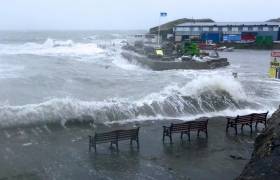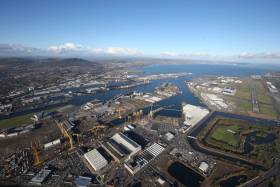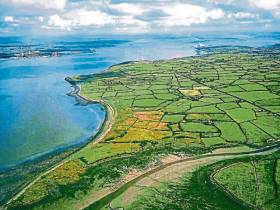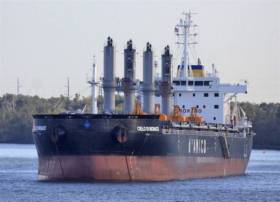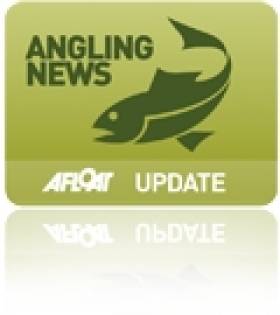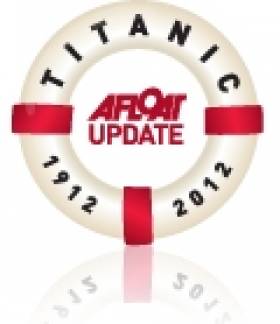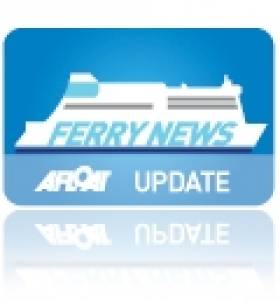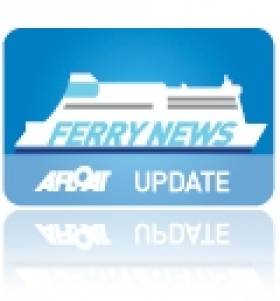Displaying items by tag: High Court
Bulloch Harbour: High Court to Hear Campaigners Application Against Housing Proposal
A hearing will be held in the High Court writes Dublin Gazette, on an application by local campaigners against a housing development at Bulloch Harbour, Dalkey next week.
Earlier this year, the controversial development got the green light from An Bord Pleanala for three three-storey houses, two apartments, a cafe and a number of other buildings.
There has been anger among some locals, who feel the proposals don’t fit in with the landscape of the surrounding area, and there are also concerns about the potential for flooding.
Save Bulloch Harbour is a campaign led by Bulloch Harbour Preservation Association (BHPA), made up of local boat owners, fishermen, harbour users and residents.
Next Monday, October 14, the high court will hear BHPA’s application for a judicial review of An Bord Planala’s decision to grant planning permission for the proposed development.
For more read here including details of a public meeting to be held by BHPA.
Shipyard: Harland and Wolff Insolvency Request to Be Filed
A formal legal process to place Harland and Wolff into administration will be completed later today.
As the BBC News reports an insolvency request is expected to be filed at the High Court in Belfast.
On Monday, the company announced that accountancy firm BDO had been appointed administrators to the Belfast shipyard.
Having employed more than 30,000 at its peak, the move could now put 120 jobs at risk and spell the end of the iconic firm, best known for building the Titanic.
Unions representing workers have called for the shipyard to be renationalised, arguing it would be cheaper for the government to keep the shipyard open.
However, the government has said the crisis is "ultimately a commercial issue".
For more on this story in addition to the history of the famous shipyard click here.
#ferries - Operator Irish Ferries has brought a High Court challenge over a finding it must pay compensation to thousands of passengers affected by the cancellation of sailings between Ireland and France last summer.
As The Irish Times reports, the ferry company says it had to cancel the services because a new ferry, the WB Yeats, which it had ordered to operate the service between Dublin and Cherbourg, was delayed for several months.
Its legal challenge is to the National Transport Authority’s decision last January that, arising out of the cancellations, the company breached EU regulations concerning the rights of passengers travelling by sea.
The NTA issued the company with two notices requiring it pay compensation to impacted passengers within a period of two months.
The notices direct the company to pay compensation to passengers impacted by the cancellations who had to travel from Rosslare instead of Dublin and from Roscoff instead of Cherbourg.
The notices also state passengers who were delayed in reaching their final destination who have already requested compensation from the company must also be paid compensation.
Non-compliance with the notices is an offence, with a maximum fine on conviction of €250,000.
The company disputes the NTA’s finding and contends the notices are invalid, irrational, disproportionate and breach its rights under the Constitution and EU law. It also argues the NTA has misinterpreted the relevant EU regulations.
The cancellations occurred because a new ship it had commissioned from the German shipyard Flensburger Schiffbau-Gesellschaft was delivered some “200 days” late, Paul Gallagher SC, for the company, told the High Court on Monday.
The delay came as a shock to Irish Ferries and made headlines in the media, he said.
For further reading on this development, click here.
Ruling of High Court on Shannon LNG Planning Due Next Week
#coastal - At the High Court it is expected to rule next week on its judicial review on extending planning permission to build a liquefied natural gas (LNG) plant on the Shannon Estuary.
The judicial review hearings reports the Limerick Leader were held over several days last week and a ruling is expected on February 15.
The ruling is likely to determine whether New Fortress Energy, the new backers of the project, can proceed to build the plant or whether they will have to apply for a new planning permission or abandon the plan altogether.
Environmentalists opposed to the project will hold a demonstration in Dublin (today), Sunday.
For further reading on this mid-west development, click here.
#Ports&Shipping - The Irish Examiner writes that the Marine Survey Office was not justified in issuing a detention order for a ship damaged while it was berthing in Greenore port, Co Louth, the High Court has ruled.
The Circuit Court had previously ruled the Marine Survey Office of the Department of Transport, Tourism and Sport, was not justified in detaining the MV Cielo di Monaco, a Malta-registered bulk carrier owned by D'Amico Societádi Navigazione (DSN).
That court said, on the evidence before it, the vessel was not a clear hazard to safety, health or the environment.
The High Court's Mr Justice Denis McDonald agreed and refused an appeal against that decision by the Marine Survey Office (MSO).
The 180-metre long vessel entered Greenore on September 27, 2015, to discharge cargo. It was piloted in, as pilotage is compulsory in the privately-owned Greenore.
While dredging had been carried out at the port to provide a deep-water berth, it transpired no dredging had occurred in the inner area of the berth where the bulbous bow of the MV Cielo di Monaco berthed, the court heard.
The next morning, the crew notice an ingress of water and it was established there were cracks in the steel plating of the vessel from it having grounded in the lowering tide.
The Master of the vessel notified a number of bodies and organisations about the damage, including the Marine Casualty Investigation Board.
For further reading of this story, click here.
Seized Cigarette Cargoship Detained in Dublin Port For Three Years to Be Finally Disposed
#SeizedShip – A Moldovan flagged cargoship seized with €14m worth of tobacco by the Revenue Commissioners three years ago still remains detained in Dublin Port but plans are in place to finally dispose the vessel.
The 667 tonnes Shingle had loaded 32m cigarettes and 4,000kg of water pipe tobacco in Slovenia and from there arrived to Drogheda Port in June 2014 via Lisbon, Portugal. At the time of the recovery it was the biggest seizure of cigarettes so far in Europe that year. The operation had targeted an international crime gang led by Irish and UK nationals based also in Europe.
Afloat can confirm the latest status of the seized cargoship following a response from the Revenue Commissioners which commented the ‘High Court last month made an Order for the forfeiture of the MV Shingle. There was no appeal within the specified period and the vessel can now be disposed of. Following consideration of disposal options, appropriate disposal arrangements will be made in due course’.
The customs seizure operation had involved not just the Revenue Commissioners but months of work and co-operation from law enforcement agencies in Solvenia and Portugal. This led to the Shingle boarded in the Irish Sea by Customs officers backed by the Gardaí.
The Shingle was escorted by Revenue Customs Cutters Suirbheir and sister Faire to Drogheda. Due to the sheer scale of the seizure for logistical reasons it was decided to transfer the 1982 built cargoship from the Louth port to the capital. Again this passage required the cutters to accompany the vessel.
Initially the Shingle in Dublin Port was allocated a berth within Alexandra Basin along Ocean Pier to where an intensive examination of the illegal contraband took place. Following the customs seizure, the Paris MoU, an international organisation whose mission is to eliminate the operation of sub-standard ships through Port State Control detained the cargoship.
The Shingle shifted berths to the North Wall Quay Extension. This is where for the last three years the small ship has occupied a prominent berth given its close proximity to passing commuters using the Tom Clarke (East-Link) toll bridge.
High Court Rules In Favour of IFI In Gweebarra Fishery Dispute
#Angling - Judgement in the first module of a High Court trial over a long-running dispute between Inland Fisheries Ireland (IFI) and local anglers at the Gweebarra fishery has been found in favour of the fisheries agency.
Ms Justice Laffoy delivered her judgement on Wednesday 19 November in the first part of a modular trial sought by IFI "to allow key issues to be determined in this first module with the objective of saving court time and costs".
The first module related to what IFI said are the most important sections of the Donegal fishery (both State and privately owned) that it manages - such as the well-known 'Mayo Pool'.
A key claim by defendants Peadar O'Baoill and others - who are opposed to changes in fishing arrangements introduced by IFI (then the Northern Regional Fisheries Board) in 2007 - was that they had acquired rights to fish freely without permits at the Gweebarra fishery by virtue of angling freely there for many years prior to the regulation changes five years ago.
IFI argued that if such rights were upheld, it would have made the 2007 arrangements "unworkable" as the rod management plan central to the changes was dependent on regulation by issue of permits.
However Ms Justice Laffoy rejected the defendants' claim in this regard, saying: “The reality is that the defendants have not established any right, public, or otherwise, to fish in the freshwater part of the Gweebarra River, including the part thereof the subject of this module.”
The court also determined conclusively that IFI has the right to manage, control and regulate both the State-owned and privately held freshwater sections of the Gweebarra fishery.
In her concluding remarks, the judge urged both parties to resolve their remaining dispute locally and out of court.
Commenting after the trial, IFI repeated its "previously stated position that it has absolutely no wish to be involved in proceedings of this nature and remains committed to the protection of the Gweebarra fishery in its entirety, the public portion of which is a state asset.
"It welcomes any initiative which will allow for sustainable management of the fishery into the future. It is happy therefore to seek to resolve the remainder of the dispute, but such would have to be found in the context of existing legal agreements with other stakeholders."
Titanic Scale Model Focus of High Court Dispute
#TITANIC - A replica of the Titanic is at the centre of a High Court dispute between two former partners, as RTE News reports.
Carmel McGrath claims she paid the costs of constructing the 16ft scale replica of the tragic cruise liner, and has secured an injunction preventing Zoltan Panka, a Hungarian national, from selling the €70,000 model after he removed it from her home in the northern suburbs of Cork.
Panka gave a sworn statement to the court disputing the claims of his former partner, alleging he received abusive messages from her after taking the model.
He denies any intention to sell the replica, currently believed to be at a location in Carrigaline, and repudiates the estimated value of McGrath's investment as well as any commercial relationship between the two.
The Hungarian added that model ship building was a family hobby, and that he had put in as much as 2,000 hours' worth of work into the uncompleted project, which was intended to mark the 100th anniversary of the ship's demise.
RTE News has much more on the story HERE.
High Court Extends Protection for Cork-Swansea Ferry Operators
#FERRY NEWS-A High Court judge has agreed to continue court protection for the companies operating the Cork-Swansea ferry service to allow for finalisation of a survival scheme, reports The Irish Times.
Mr Justice Peter Kelly said yesterday he was satisfied to extend the protection period for the companies to January 24th next.
The extension of time was sought by Declan Murphy, for the companies' examiner Michael McAteer, to allow time for an investment agreement to be signed and a survival scheme put before meetings of creditors.
Fastnet Line Ship Holdings Ltd (100 per cent owned by the West Cork Tourism Co-operative Society Ltd) and related companies operating the ferry service using the M.V. Julia (1981/22,161grt) from the ferry terminal at Ringaskiddy, Co Cork, secured court protection last month.
Later Noel Murphy, chairman of the West Cork Tourism Co-Operative Society, said they had outlined the urgent funding required to secure the future of the service, which will allow them to present a financial proposal to the examiner in early January.
To date €673,000 has been raised by individual donors, customers, shareholders and local businesses, leaving just under €1 million to be raised.
High Court Appoint Examiner to Cork-Swansea Operator
Mr Justice Peter Kelly appointed Michael McAteer of Grant Thornton interim examiner at a sitting of the High Court. Mr McAteer will present a progress report to the court on November 15.
The Fastnet Line companies are owned by the West Cork Tourism Co-Operative Society Limited, which was formed in April 2009. Over 400 members have invested funds in the venture which started in March 2010 following the closure of Swansea Cork Ferries which ran on the route until 2006.



























